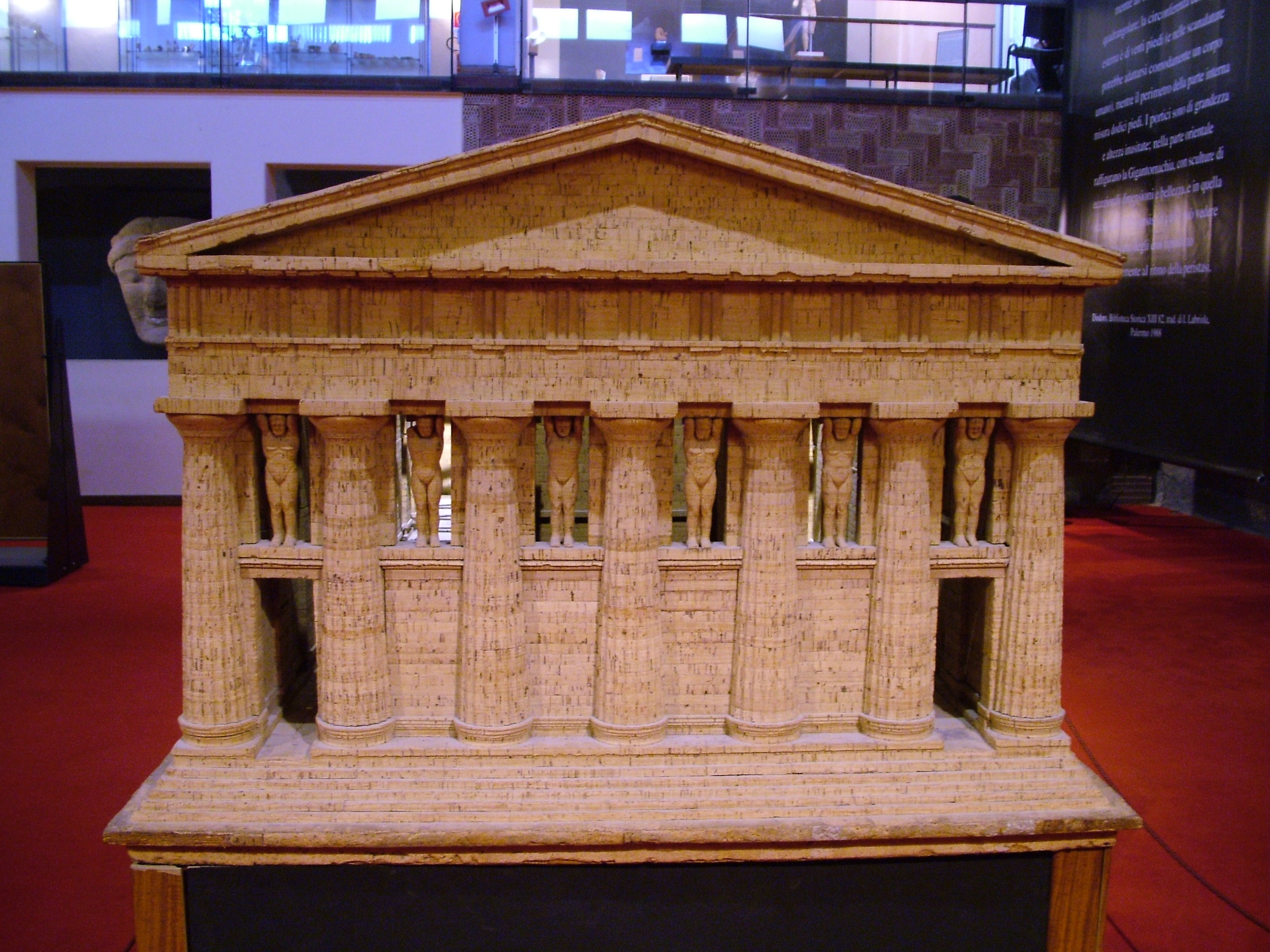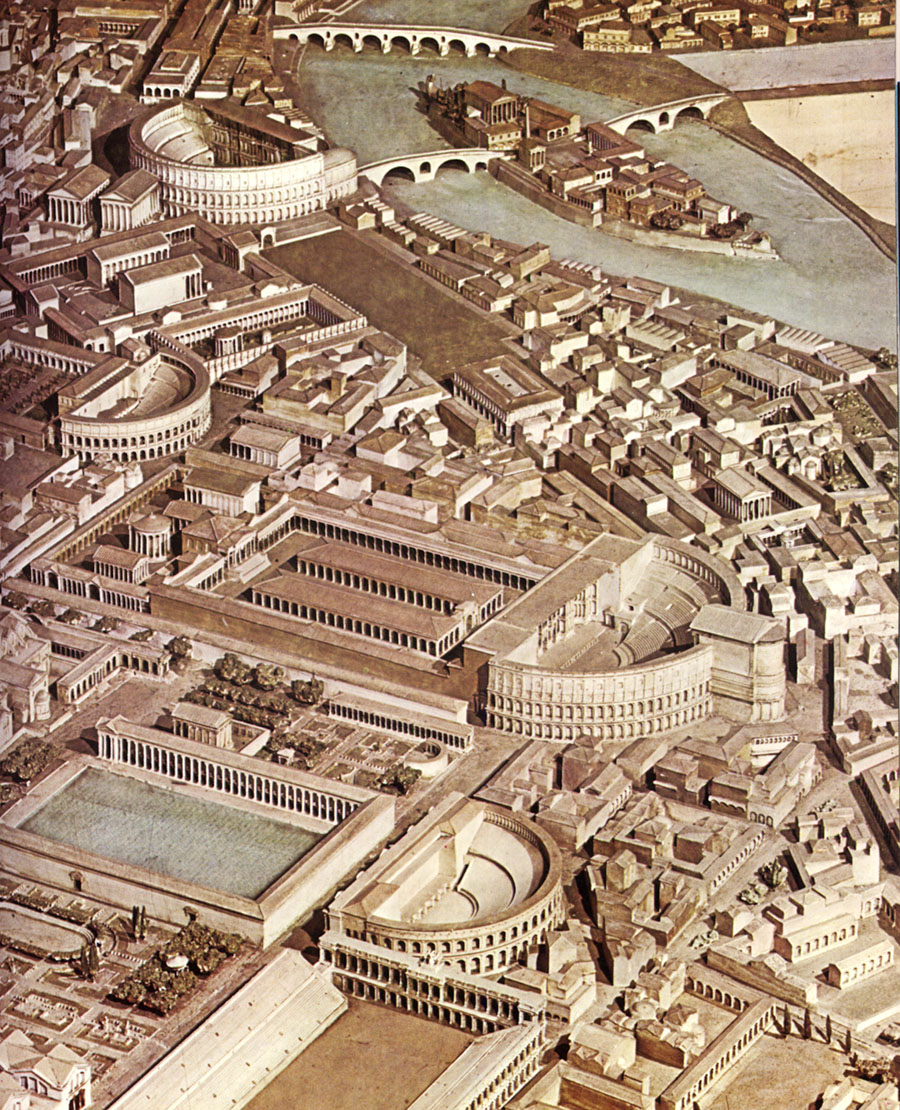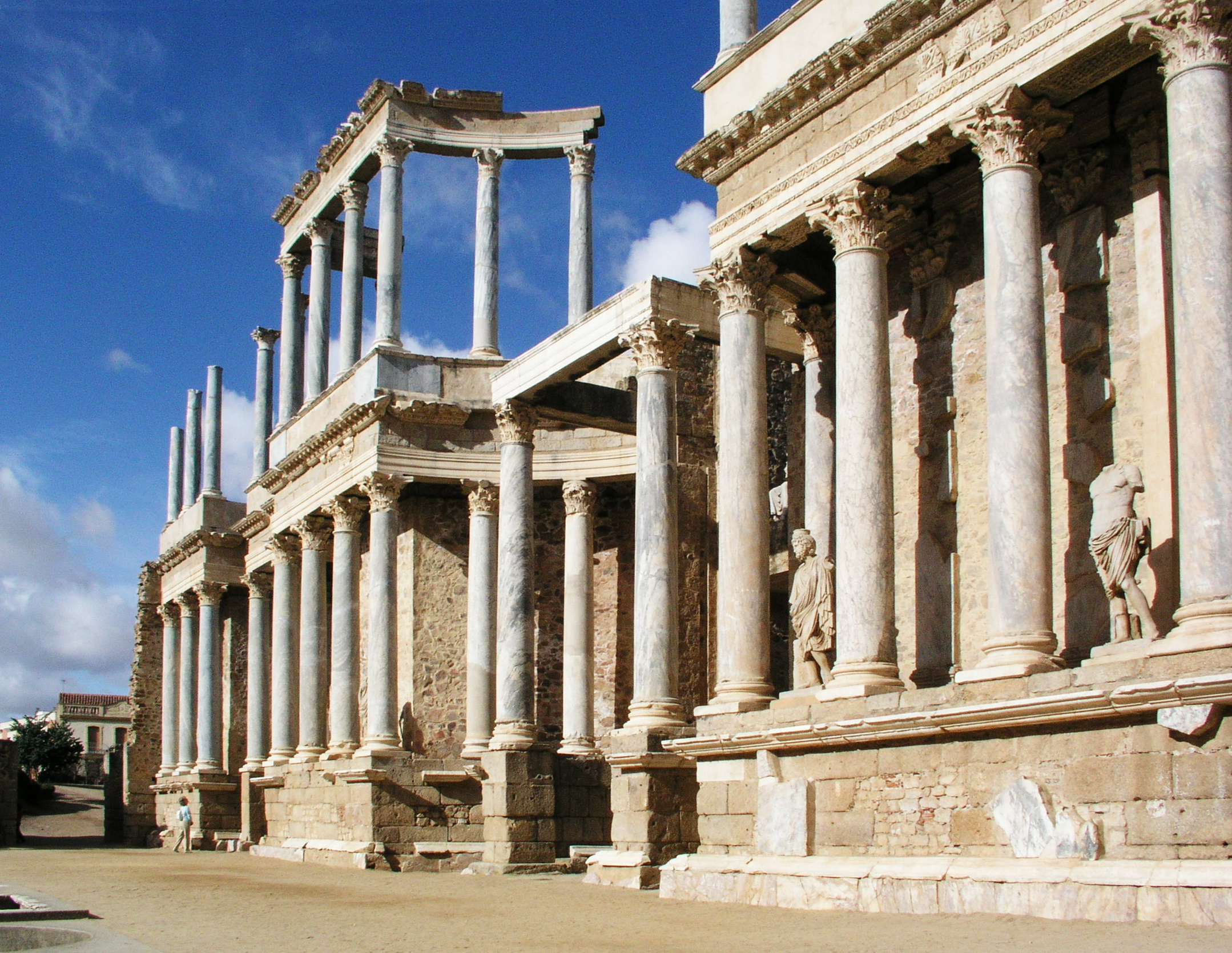|
Diribitorium
The diribitorium was a public voting hall situated on the campus Martius in Ancient Rome. In this building, the votes cast by the people were counted by ''diribitores'' (election officials). Construction of the building was started by Marcus Agrippa but finished by Augustus in 7 BC. "Its roof had the widest span of any building erected in Rome before 230 A.D., and was supported by beams of larch one hundred feet long and one and a half feet thick." According to Cassius Dio, the diribitorium was among a number of public buildings that were destroyed by fire in 80 AD, and subsequently rebuilt by Emperor Titus.Cassius Dio, ''Roman History'LXVI.24/ref> Christian Hülsen Christian Karl Friedrich Hülsen (born in Charlottenburg, 29 November 1858; died in Florence, Italy, on 19 January 1935) was a German architectural historian of the classical era who later changed to studying the Middle Ages and the Renaissance. ... proposed a theory that the diribitorium was a second story atop the ... [...More Info...] [...Related Items...] OR: [Wikipedia] [Google] [Baidu] |
Saepta
The Saepta Julia was a building in the Campus Martius of Rome, where citizens gathered to cast votes. The building was conceived by Julius Caesar and dedicated by Marcus Vipsanius Agrippa in 26 BC. The building replaced an older structure, called the Ovile, built as a place for the '' comitia tributa'' to gather to cast votes.Simon Hornblower and Antony Spawforth (eds.), The Oxford Classical Dictionary (1996) — ; available online for a fee The Saepta Julia can be seen on the '' Forma Urbis Romae'', a map of the city of Rome as it existed in the early 3rd century AD. Part of the original wall of the Saepta Julia can still be seen right next to the Pantheon. History The conception of the Saepta Julia, which also goes by Saepta or Porticus Saeptorum, began during the reign of Julius Caesar. It took the form of a quadriporticus, an architectural feature made popular by Caesar. After Caesar's assassination in 44 BC, work continued on projects that Caesar had set into motion. ... [...More Info...] [...Related Items...] OR: [Wikipedia] [Google] [Baidu] |
Titus
Titus Caesar Vespasianus ( ; 30 December 39 – 13 September AD 81) was Roman emperor from 79 to 81. A member of the Flavian dynasty, Titus succeeded his father Vespasian upon his death, becoming the first Roman emperor ever to succeed his biological father. Before becoming emperor, Titus gained renown as a military commander, serving under his father in Judea during the First Jewish–Roman War. The campaign came to a brief halt with the death of emperor Nero in 68, launching Vespasian's bid for the imperial power during the Year of the Four Emperors. When Vespasian was declared Emperor on 1 July 69, Titus was left in charge of ending the Jewish rebellion. In 70, he besieged and captured Jerusalem, and destroyed the city and the Second Temple. For this achievement Titus was awarded a triumph; the Arch of Titus commemorates his victory and still stands today. During his father's rule, Titus gained notoriety in Rome serving as prefect of the Praetorian Guard, and for ... [...More Info...] [...Related Items...] OR: [Wikipedia] [Google] [Baidu] |
List Of Greco-Roman Roofs
The list of ancient roofs comprises roof constructions from Greek and Roman architecture, ordered by clear span. Roof constructions increased in clear span as Greek and Roman engineering improved. Most buildings in classical Greece were covered by traditional prop-and-lintel constructions, which often required interior colonnades for support. In Sicily, truss roofs are believed to have appeared as early as 550 BC. Their potential was fully realized during the Roman Empire, which saw trussed roofs spanning over 30 meters in width, covering the rectangular spaces of monumental public buildings such as temples, basilicas, and later churches. These spans were three times as large as the widest prop-and-lintel roofs and were only exceeded by the largest Roman domes. Almost no original classical roofs survive. The two best known exceptions, both circular or nearly so, are the small stone roof of the Tower of the Winds in Athens (perhaps 1st century BC) and the large Roman concrete r ... [...More Info...] [...Related Items...] OR: [Wikipedia] [Google] [Baidu] |
Voting
Voting is the process of choosing officials or policies by casting a ballot, a document used by people to formally express their preferences. Republics and representative democracies are governments where the population chooses representatives by voting. The procedure for identifying the winners based on votes varies depending on both the country and the political office. Political scientists call these procedures electoral systems, while mathematicians and economists call them social choice rules. The study of these rules and what makes them good or bad is the subject of a branch of welfare economics known as social choice theory. In smaller organizations, voting can occur in many different ways: formally via ballot to elect others for example within a workplace, to elect members of political associations, or to choose roles for others; or informally with a spoken agreement or a gesture like a raised hand. In larger organizations, like countries, voting is generally confi ... [...More Info...] [...Related Items...] OR: [Wikipedia] [Google] [Baidu] |
Campus Martius
The Campus Martius (Latin for 'Field of Mars'; Italian: ''Campo Marzio'') was a publicly owned area of ancient Rome about in extent. In the Middle Ages, it was the most populous area of Rome. The IV rione of Rome, Campo Marzio, which covers a smaller section of the original area, bears the same name. Antiquity According to Rome's foundation myth, prior to the founding of the city, Rhea Silvia had her twin sons, Romulus and Remus, taken by the King of Alba Longa. The boys were later discarded in the swelling Tiber River, which would later run along the Campus' western boundary. Washing ashore further downriver, the brothers would return decades later to found a new city. Romulus, who became Rome's sole king (after killing his brother Remus), ruled for many years until sometime in the seventh century B.C. As he came to the end of his life, a storm cloud descended upon the center of the open field outside the city's pomerium in order to lift the elderly king to the afterlife.J ... [...More Info...] [...Related Items...] OR: [Wikipedia] [Google] [Baidu] |
Ancient Rome
In modern historiography, ancient Rome is the Roman people, Roman civilisation from the founding of Rome, founding of the Italian city of Rome in the 8th century BC to the Fall of the Western Roman Empire, collapse of the Western Roman Empire in the 5th century AD. It encompasses the Roman Kingdom (753–509 BC), the Roman Republic (50927 BC), and the Roman Empire (27 BC476 AD) until the fall of the western empire. Ancient Rome began as an Italic peoples, Italic settlement, traditionally dated to 753 BC, beside the River Tiber in the Italian peninsula. The settlement grew into the city and polity of Rome, and came to control its neighbours through a combination of treaties and military strength. It eventually controlled the Italian Peninsula, assimilating the Greece, Greek culture of southern Italy (Magna Graecia) and the Etruscans, Etruscan culture, and then became the dominant power in the Mediterranean region and parts of Europe. At its hei ... [...More Info...] [...Related Items...] OR: [Wikipedia] [Google] [Baidu] |
Election
An election is a formal group decision-making process whereby a population chooses an individual or multiple individuals to hold Public administration, public office. Elections have been the usual mechanism by which modern representative democracy has operated since the 17th century. Elections may fill offices in the legislature, sometimes in the executive (government), executive and judiciary, and for local government, regional and local government. This process is also used in many other private and business organizations, from clubs to voluntary association and corporations. The global use of elections as a tool for selecting representatives in modern representative democracies is in contrast with the practice in the democratic archetype, ancient History of Athens , Athens, where the elections were considered an oligarchy , oligarchic institution and most political offices were filled using sortition, also known as allotment, by which officeholders were chosen by lot. ... [...More Info...] [...Related Items...] OR: [Wikipedia] [Google] [Baidu] |
Marcus Agrippa
Marcus Vipsanius Agrippa (; BC – 12 BC) was a Roman general, statesman and architect who was a close friend, son-in-law and lieutenant to the Roman emperor Augustus. Agrippa is well known for his important military victories, notably the Battle of Actium in 31 BC against the forces of Mark Antony and Cleopatra. He was also responsible for the construction of some of the most notable buildings of his era, including the original Pantheon. Born to a plebeian family , in an uncertain location in Roman Italy, he met the future emperor Augustus, then known as Octavian, at Apollonia, in Illyria. Following the assassination of Octavian's great-uncle Julius Caesar in 44 BC, Octavian returned to Italy. Around this time, Agrippa was elected tribune of the plebs. He served as a military commander, fighting alongside Octavian and Caesar's former general and right-hand man Mark Antony in the Battle of Philippi. In 40 BC, he was ''praetor urbanus'' and played a major role in the Perusine ... [...More Info...] [...Related Items...] OR: [Wikipedia] [Google] [Baidu] |
Augustus
Gaius Julius Caesar Augustus (born Gaius Octavius; 23 September 63 BC – 19 August AD 14), also known as Octavian (), was the founder of the Roman Empire, who reigned as the first Roman emperor from 27 BC until his death in AD 14. The reign of Augustus initiated an Roman imperial cult, imperial cult and an era of regional hegemony, imperial peace (the or ) in which the Roman world was largely free of armed conflict. The Principate system of government was established during his reign and lasted until the Crisis of the Third Century. Octavian was born into an equites, equestrian branch of the plebeian Octavia gens, Octavia. Following his maternal great-uncle Julius Caesar's assassination of Julius Caesar, assassination in 44 BC, Octavian was named in Caesar's will as his Adoption in ancient Rome, adopted son and heir, and inherited Caesar's name, estate, and the loyalty of his legions. He, Mark Antony, and Marcus Lepidus formed the Second Triumvirat ... [...More Info...] [...Related Items...] OR: [Wikipedia] [Google] [Baidu] |
Christian Hülsen
Christian Karl Friedrich Hülsen (born in Charlottenburg, 29 November 1858; died in Florence, Italy, on 19 January 1935) was a German architectural historian of the classical era who later changed to studying the Middle Ages and the Renaissance. Biography Hülsen was born in Berlin. He studied classical philology, ancient history and archaeology with Ernst Curtius, Johann Gustav Droysen (1808-1884), Emil Hübner (1834-1901), Johannes Vahlen (1830-1911), and Theodor Mommsen (1817-1903). His dissertation, on Ovid, was directed by Mommsen and Hübner. Through Mommsen, he was awarded a stipend from the DAI ( Deutsches Archäologisches Institut) to travel to Rome where he assisted in the compilation of the ''Corpus Inscriptionum Latinarum'' for the city of Rome. In 1904 he published his ''Das Forum Romanum'', an important and widely translated work on the Roman Forum. As a topographical scholar he gained equal fame with his volume on Roman topography, volume three of ''Topographie d ... [...More Info...] [...Related Items...] OR: [Wikipedia] [Google] [Baidu] |
7 BC
__NOTOC__ Year 7 BC was a common year starting on Saturday or Sunday of the Julian calendar (the sources differ, see leap year error for further information) and a common year starting on Thursday of the Proleptic Julian calendar. In the Roman world, it was known as the Year of the Consulship of Tiberius and Piso (or, less frequently, year 747 ''Ab urbe condita''). The denomination 7 BC for this year has been used since the early medieval period, when the Anno Domini calendar era became the prevalent method in Europe for naming years. Events * * May 7 – Emperor Ai succeeds to the throne of Han China. * Augustus' second census of the Roman Empire reports a total of 4,233,000 citizens. However, the specific criteria of the census are still not clear. * Rome is divided in 14 administrative regions. Births * Possible birthdate of Jesus, according to appearance of a very bright triple conjunction of the royal star Jupiter and Saturn in the sign of Pisces (land in the west) i ... [...More Info...] [...Related Items...] OR: [Wikipedia] [Google] [Baidu] |





